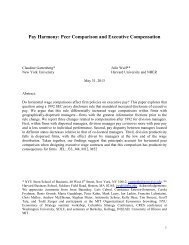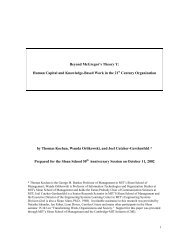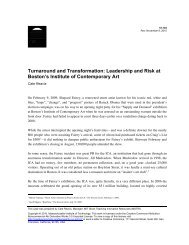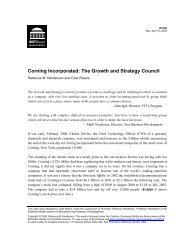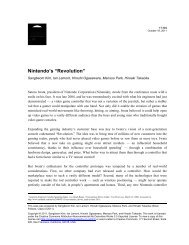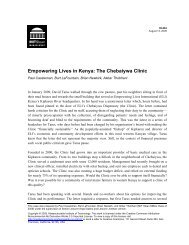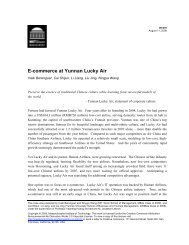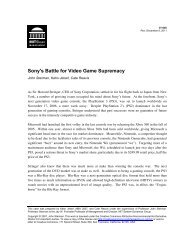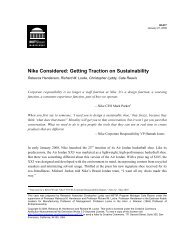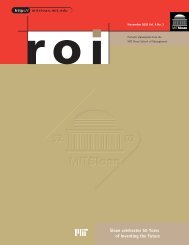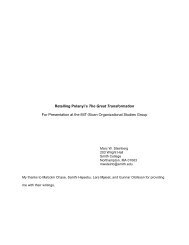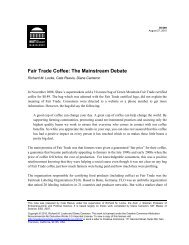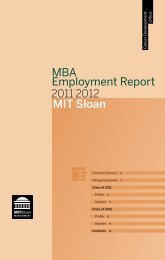Understanding earnings quality - MIT Sloan School of Management
Understanding earnings quality - MIT Sloan School of Management
Understanding earnings quality - MIT Sloan School of Management
Create successful ePaper yourself
Turn your PDF publications into a flip-book with our unique Google optimized e-Paper software.
there are (in theory) predictable accounting choices that can meet both objectives. For example, in a<br />
world <strong>of</strong> imperfect debt contracting, many types <strong>of</strong> gains can prevent covenant violation, but if they<br />
are made transparent, equity investors can undo their effect on <strong>earnings</strong> and they will not affect<br />
“information <strong>quality</strong>.” This observation represents a research opportunity, but it also suggests that it<br />
is difficult to interpret the evidence <strong>of</strong> studies that focus on only one determinant <strong>of</strong> an accounting<br />
choice.<br />
Recognizing that the single reported <strong>earnings</strong> number is the outcome <strong>of</strong> a complicated<br />
number <strong>of</strong> choices, motivated by multiple incentives, has implications for understanding the<br />
consequences <strong>of</strong> <strong>earnings</strong> <strong>quality</strong>. If equityholders understand a firm’s incentives for reporting<br />
<strong>earnings</strong>, and if they understand its constraint to report only one <strong>earnings</strong> number, and if they have<br />
the ability to interpret reported <strong>earnings</strong> and/or to substitute other information for reported <strong>earnings</strong>,<br />
then we may not observe positive market responses to <strong>earnings</strong> that are <strong>of</strong> high <strong>quality</strong> with respect<br />
to equity valuation decisions. In fact, equity markets might respond negatively to firms that do not<br />
report a number that maximizes firm value, even if it distorts the ability <strong>of</strong> <strong>earnings</strong> to capture the<br />
firm’s fundamental <strong>earnings</strong> process. In contrast, if equityholders do not recognize the <strong>earnings</strong><br />
management to meet non-equity market objectives, accounting choices will have a spillover effect to<br />
the equity markets. Studies <strong>of</strong> accounting choice generally do not emphasize the trade-<strong>of</strong>f between<br />
the short-term benefits <strong>of</strong> opportunistic accounting choices at the time <strong>of</strong> an event (e.g., an IPO) and<br />
the potential long-term reputation loss due to these one-<strong>of</strong>f <strong>earnings</strong> management decisions.<br />
(5) As noted previously, the determinants and consequences <strong>of</strong> abnormal accruals have received the<br />
most attention. The literature tends to validate accruals models by showing that the abnormal<br />
accrual is correlated with hypothesized predicted determinants or consequence <strong>of</strong> abnormal accruals.<br />
22



